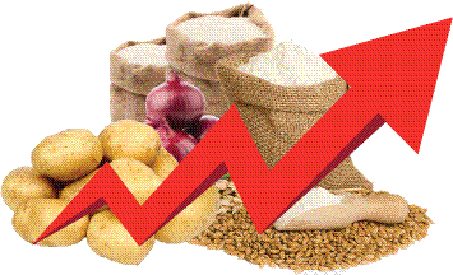
Published :
Updated :

The findings of a survey conducted by the Youth Network Policy (YNP) are highly concerning and should have triggered matching socio-political reactions. But nothing of this order happened. The survey titled "Food Security and VAT for Marginalised Communities" made some chilling revelations. People in the low income bracket of Tk10,000-15,000 have been forced to make compromise on their food intake in various ways. Of this low-income group, 17.03 per cent people admitted they skipped their main meal, lunch that is, and substituted it with bread or biscuit. Of the respondents from 15 locations across the country, 60 per cent deliberately or of necessity started their days without taking breakfast and 88 per cent of them have to make do with bread and biscuit in place of rice.
That the news failed to draw attention of and reactions from the privileged classes, policymakers and political parties known for favouring maintenance of status quo in social order is not surprising. But at least the left-leaning political parties and the student leaders who were the architects of the July-August uprising could have taken up the issue seriously. They claim their objective is to eliminate social discrimination. Continued socio-economic discrimination leads to widespread inequality and disparities in any given society. Notably, the rallying cry of fighting discrimination stops short of the broader vision of reducing the outrageous disparities and equality existing in Bangladesh society.
Well, the marginalised segment of society, however, enjoyed the backing from an unlikely quarter. Manufacturers of bread and biscuits had their representatives at the launching of the YNP report at the Economic Reporters Forum (ERF) in Paltan, Dhaka. But the manufacturers of this particular type of food were not led by the governing motive of supporting the low-income people without their self-interests. They were lobbying for reduction of the value-added tax (VAT) raised recently from 5.0 per cent to 7.50 per cent. As high as 70 per cent of small retail shops of such food items reported a significant drop in sales of bread and biscuits, according to the survey.
This indicates that the low-income people can no longer afford the foods they consumed as a substitute for rice. The manufacturers have either increased the price of such food items or shrunk the size of the packet. So they have argued, quite logically though, that the poor and lower middle classes including students who mostly rely on such items for light refreshments are adversely affected by the hike in VAT. Well, they have a point. But more importantly, it is the overall impact on the low-income community that should have received proper evaluation.
There is no point slapping tax on such essentials which have been the poor man's last resort for barely keeping their body and soul together. Leaving aside the quality of the bread and biscuits these hapless people consume, their nutrition value is far lower compared to a whole meal. Maybe, the carbohydrate contents are similar but even a meal comprising leafy vegetables and cheaper fish is far better than the substitute. The reality of starker malnutrition poses a serious threat to the national health.
In the post-Covid period, studies on food intake by poor, lower middle and middle class people have shown how the majority of them have to forego many of their choicest dishes and essentially nutrient items like egg and milk they were used to list as their must dietary components. There is no reason to think that the situation has improved by this time. In fact, the majority people's income has not risen; rather more and more employees and higher category members of staff in the private sector have found their service dispensable as part of a cost-cutting drive.
Business in most cases is dull and yet commodities have not registered any price slump. With Taka becoming cheaper, the commodity --- particularly the imported ones --- market has become absurdly volatile. The demand may have been somewhat lower, but there are people who never run out of money to procure the prized items. A big-size hilsha fish weighing two and a half kilos netted at some point of the river Padma near Goalanda ferry terminal was sold for Tk13,500 to someone from Chattogram recently. There are more Motiurs of the goat-scam infamy than the public can think of.
This is what the economic reality of Bangladesh today is. Some people are wallowing on wealth they accumulated by means fair or foul but the marginalised have been further pushed to the brink. The unethical practices of wealth accumulation in the form of graft or business malpractices go on. Or, how can the number of millionaires go up at a time of economic recession and contraction? Many complain that the culture of bribe is still rife despite the hyperactive Anti-Corruption Commission (ACC)'s drive against the corrupt elements. Apart from the ACC's decision to probe into the assets of some NBR officials who recently led the shutdown programme, the anti-graft body has mostly concentrated on filing cases against the ministers, bureaucrats, high profile police officers etc.; of the past regime. The sitting officials and other employees, albeit suspect, are not so much troubled.
What is most worrying is that neither the national budget nor any reform agenda does match the expectation of the common people. There is no deliberation on the subject of reducing the atrocious socio-economic disparities and inequality. Clearly, the class characters of big political parties and most members of the reform committees stand on the way of finding the urgency of considering the existing social and economic inequality on a priority basis.
nilratanhalder2000@yahoo.com


 For all latest news, follow The Financial Express Google News channel.
For all latest news, follow The Financial Express Google News channel.